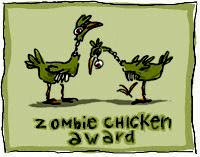On our last evening in Xi-an we went to the fountain light show. It was much like others I’ve seen at The Bellagio, Las Vegas or the Barcelona Olympics but what must be one of the most underestimated spectaculars of all times is the setting of the event which is in the most magnificent park. We were dropped off at the end of the avenue that leads up to the park and I can honestly say that the Las Vegas strip is tacky compared to this avenue, but I guess that wouldn’t be difficult! Words cannot describe how beautiful it is. Well I guess one overused word CAN describe it – awesome.
And the park is surrounded by interesting little shops. We all said “how come we’ve never been here before”. It would have been much nicer than walking on the city wall in the heat of the day. And the icing on the cake is that there are American food outlets there too, like Baskin Robins, Pizza Hut, Subway, etc. We could have had a brilliant day wandering through this area shopping and eating fast food! Oh well, next time.
Another thing worth mentioning about Xi’an is the traffic. It’s horrendous, much like Beijing, but in Beijing they do at least obey traffic lights. In Xi’an they totally ignore them! It’s quite frightening really. They are lunatics. Our guide Ann ominously told us “next year this will change”! What did she mean I wonder? Will the bad drivers be subject to “criticism” and put to death just as in the days of the Cultural Revolution?
This morning we reluctantly said goodbye to Xi-an to take the 7 hour drive to Pengyang. Our Guide whiled away the time by telling us more about the Cultural Revolution. It lasted from 1966 to 1978 and was Chairman Mau’s dream of handing power over to the “workers”. Anyone who had been successful, either commercially, intellectually or, even worse, was a landlord, was considered to be an enemy of the state. Gary’s father had been a factory owner.
Gary and his family were considered to be a second class citizens his father had owned a factory. Pre revolution he had been popular but post revolution none of his classmates would play or socialise with him. He said the education system virtually collapsed because to show intellect was to become an outcast. The students that completely failed were the ones who were praised. It wasn’t until his father eventually found work as a manual labourer on a very poor wage that they were accepted back into society again.
He said it was Mau’s greatest mistake. He had been greatly influenced by his strange wife and her mad ideas. The social experiment was eventually deemed to have been a spectacular failure. It took years to overcome all the harm it caused.
One way to improve yourself in those days was to join the Army because if you served 3 years without pay you were guaranteed a good job with the government at the end of this term and you could join the communist party which was a sure way of gaining promotion. Unfortunately, because of Gary’s background he was rejected for Army service but managed to acquire a position as a language student. He then became a victim of the “criticism” as it was called because he was reported to the Red Guard for listening to foreign radio stations. His claims that his only reason for doing this was to help improve his English. By this time getting toward the end of the Cultural Revolution but if it had been a few years earlier he would have been imprisoned for this offence. As it was he was subjected to the “criticism” and excluded from the communist party, the result of which was that any future promotion was blocked.
He then went to work as a teacher but the children were completely disruptive because of the failure of education and he found it difficult to control them. Eventually he resigned and managed to get a job as a travel guide which he does to this day. It’s a job ideally suited to him and he loves it. He said that the present government is good, although, as a dictatorship, it has its problems.
Again, we were full of trepidation about moving to new accommodation because we had had such bad experiences in Eastern Europe and Russia. But we needn’t have worried. Our new accommodation was a beautifully preserved 400 year old wooden courtyard building in the middle of town. “Town” is small and medieval, very busy and very “Chinese”. We were happy.
Friedrich Nietzsche
-
"The man of knowledge must be able not only to love his enemies but also to
hate his friends."
1 day ago

































